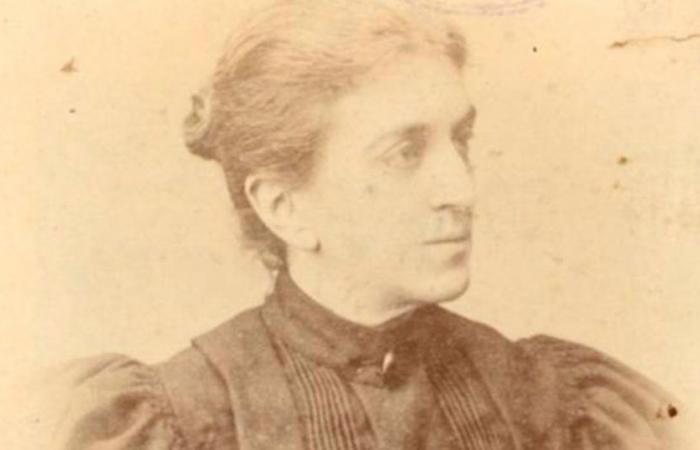A woman cannot be a lawyer. Her clothes, her fickleness, her status – always one step behind the man – they would not allow it to administer justice, nor to support a role that demands credibility and rigor. This was the common belief in Italy until the beginning of the 20th century, until a young Turin woman decided to graduate in law and devote her life to a profession until then declined to the masculine. Lidia Poët was not only the first lawyer in Italy: a pioneer for women’s emancipation, she was one of the creators of modern prison law and one of the promoters of universal suffrage.
His story redeems the right to work and professional affirmation in an era which still placed women by the hearth reserving career and power for men. 140 years after her nomination and the story that made her a symbol of tenacity and emancipation, Lidia’s life teaches the importance of standing up for one’s cause and the awareness that true justice goes far beyond a written law.
Woman and lawyer
Lidia was born on 26 August 1855 in Perrero, a small village in the Germanasca valley in the province of Turin. She is the youngest of seven siblings: the parents are Waldensian landowners, sensitive to issues of culture and education. They immediately directed their children towards their studies: still a teenager, Lidia left the family home and joined her brother Enrico in Pinerolo, where she attended normal school (equivalent to master’s). At 17 she remains fatherless, but she does not lack the support of her mother, who wants to offer his daughter the same opportunities granted to his brothers. Lidia is a brilliant student, with a particular propensity for humanities and languages: he speaks four – Italian, French, German and English – and independently studies Greek and Latin. Eight months after having obtained the teacher’s diploma, she also manages to obtain the classical maturity.
Unlike many peers, the young woman decides to continue her studies: defying the prejudices of the time, enrolled in the Faculty of Law at the University of Turin, which he attends with excellent results. At the age of twenty-six she is among the first female law graduates with a thesis on the condition of women in society in which it also deals with the issue of the right to vote. He carries out his apprenticeship in Pinerolo, in the office of Senator Cesare Bertea, and then takes the qualifying exam as a lawyer. In 1883, his request for enrollment in the register was approved by the Turin Bar Association, with eight votes in favor against four against: at twenty-eight she is the first Italian lawyer.
“It would be unbecoming”
The news is picked up by the press, including the women’s magazine The woman, who will follow the lawyer throughout her professional career. At the same time, texts and articles contrary to Lidia’s advocacy multiply: the appointment is challenged by the Attorney General of the Turin Court of Appeal, who requests its annulment. The reasons are highlighted in the pronouncement of 11 November 1883, in which it is believed that the profession of lawyer can be “practised only by males”, while women “They weren’t supposed to get involved”, because «it would be unseemly and ugly to see women descending into the forensic gymnasium and stir in the midst of the din of public judgments.” Not to mention that they would be forced to deal with topics which are unsuitable for “honest women”.
The dissertation extends to aesthetic factors, such as the incompatibility between the toga and the “strange and bizarre clothing” that women usually wear, risking to distract the regular course of the hearings with their presence. The paper concludes with a warning: women should not consider progress “to compete with men” and become “equal rather than companions”. The case is submitted to the scrutiny of the Cassation, which accepts the requests of the Court of Appeal. The verdict goes back to the principle of infrimitas sexus: Lidia will not be able to practice in the courtroom because she is a woman, category to which the legal profession was precluded by law.
Don’t miss any article! Subscribe to the weekly newsletter of Storica!
Two “impediments”
In the following years the debate flared up and leaves the forensic classrooms to reach the squares and cultural clubs, where other theories against the emancipation of women in the profession are added. The first is of a medical nature: due to menstrual cycle, it is believed that once a month a woman would not have objectivity and serenity necessary to adequately support their clients.
The second impediment is of a juridical nature: according to what is established in the Family Code established in 1865, women cannot be admitted to public offices, nor enjoy economic autonomy (prerogative of the men of the house). The same goes for the possibility of moving independently and visiting places normally closed to the female gender. This would have strongly conditioned a woman lawyer, jeopardizing her reliability and professional effectiveness, thus harming the client.
Commitment and redemption
It is natural to wonder why allow a woman to graduate, if then the profession for which she studied cannot be carried out. The motivation is simple: education was allowed, but only to provide general knowledge useful for finding a husband and securing a good social position. Being educated is considered an added value for contracting a good marriage, but not for practicing a profession. While the debate rages on, Lidia does not let herself be stopped: although she does not have the right to participate in court hearings or sign procedural documents, over the years he continues to collaborate in his brother’s law firm.
At the beginning of the 20th century the first female mobilizations took shape: in 1908 the first Congress of Italian women was held in Rome, in which Lidia actively participates, including topics such as universal suffrage, emigration and education in the programme. On the latter issue, you will be the spokesperson for the International Council of Women, organized in 1914 also in the capital. Lydia’s contribution focuses in this case on moral and legal assistance to minors in Italy, judging inappropriate the coercive and punitive systems (prisons and reformatories). The lawyer sees school education as a tool to ensure a future for young people and adequate support for Italian families.
Re-educate to help
In addition to the defense of minors, Lidia takes the issue of prisoners’ rights to heart, advocating the value of rehabilitation. In 1883 he participated in the first International Penitentiary Congress, where he supported the ineffectiveness of punitive approaches. For her, the social and moral redemption of prisoners passes through education and work: among the innovative proposals, the possibility of proposing training courses and initiatives to restore human dignity and put her back in touch with reality outside the prison. The Congresses that will be held in the coming years shape the modern penitentiary system, of which Lidia will be the promoter becoming on this theme a figure of reference on an international scale.
The First World War shook the social foundations in Italy and in Europe. Conflict brings men to the front, leaving the women to take care of the business and the family. Lidia witnesses this change firsthand and decides to be part of it offering herself as a volunteer at the front among the ranks of the Red Cross, commitment rewarded with a medal at the end of the conflict. The change begins to influence the norm: in 1919 a bill is put forward to regularize what in fact had naturally become the prerogative of women: the right to work. July 17, 1919 comes approved law number 1176 “regulations regarding the legal capacity of women” that article 7 now includes women’s right to all public employment, excluding roles related to the judiciary, politics or the military.
The battle continues
As the feminist movements of the early 20th century will argue, such a law was needed to bring order to a world changed by war, but not sufficient to guarantee that longed-for parity. By now they have become irreplaceable in contributing to the well-being of the family, women enjoy a first effective emancipation, but they still cannot get prominent places in society. However, this allows Lidia to win his battle and manages to enroll in the Turin Bar Association.
Lidia will not marry and have no children: after a life spent in the service of others, died on February 25, 1949 in Diano Marina, where he spent his last years. She is buried in Perrero, in the valley that gave her origins. In the local cemetery, dedicated to San Martino, her epigraph on her grave commemorates her as “the first lawyer in Italy”, recalling the example that she was able to set for the women of her time, paving the way for them towards gender equality that is still far away but perhaps finally possible.
To stay updated and receive Storica articles directly to your email, sign up for our weekly newsletter HERE!






